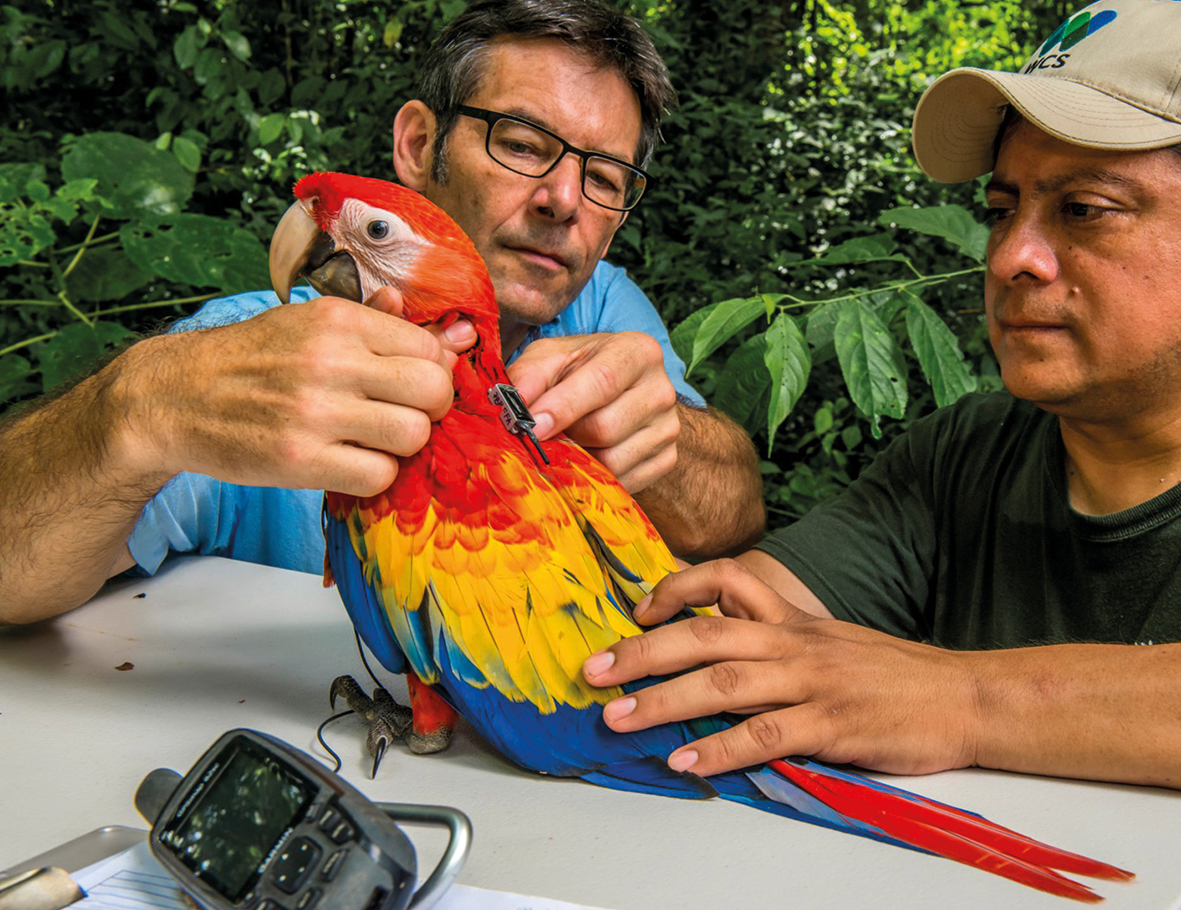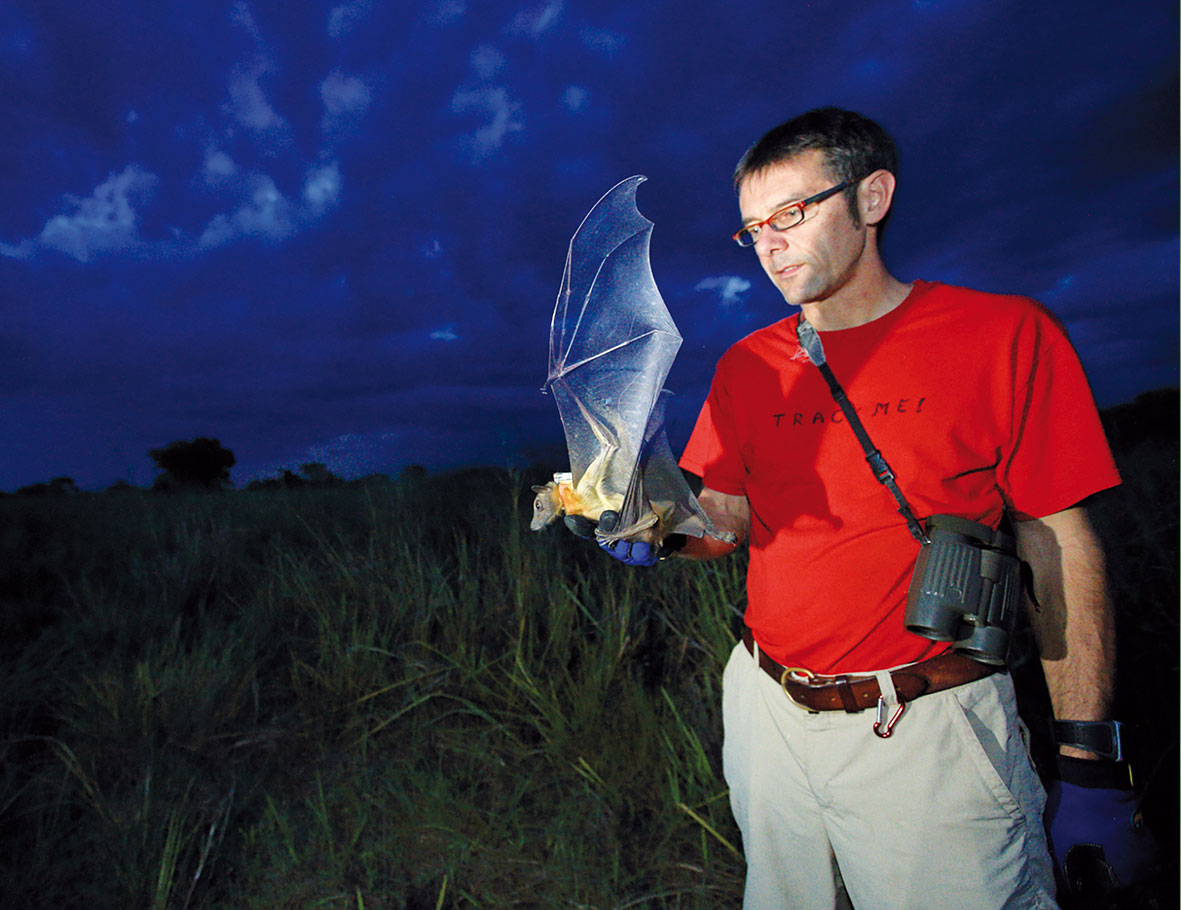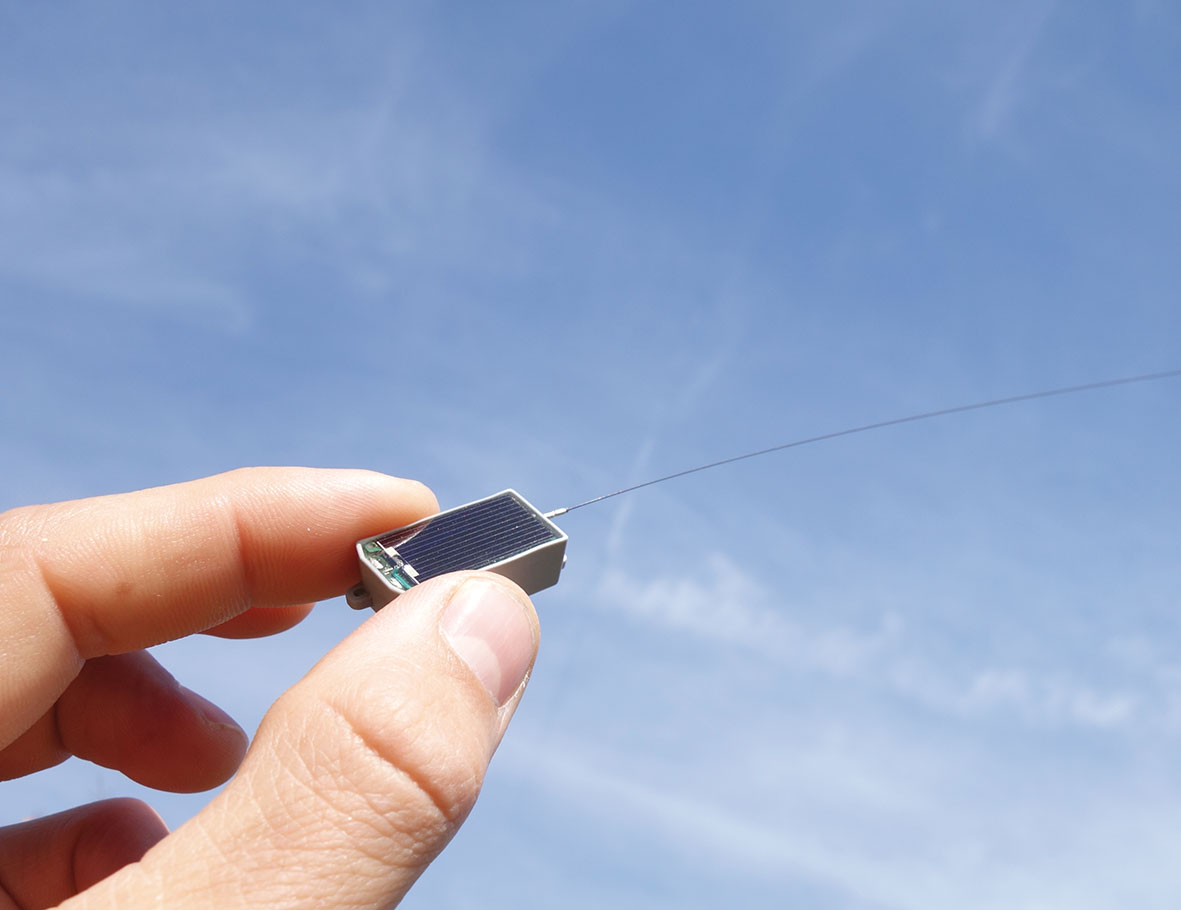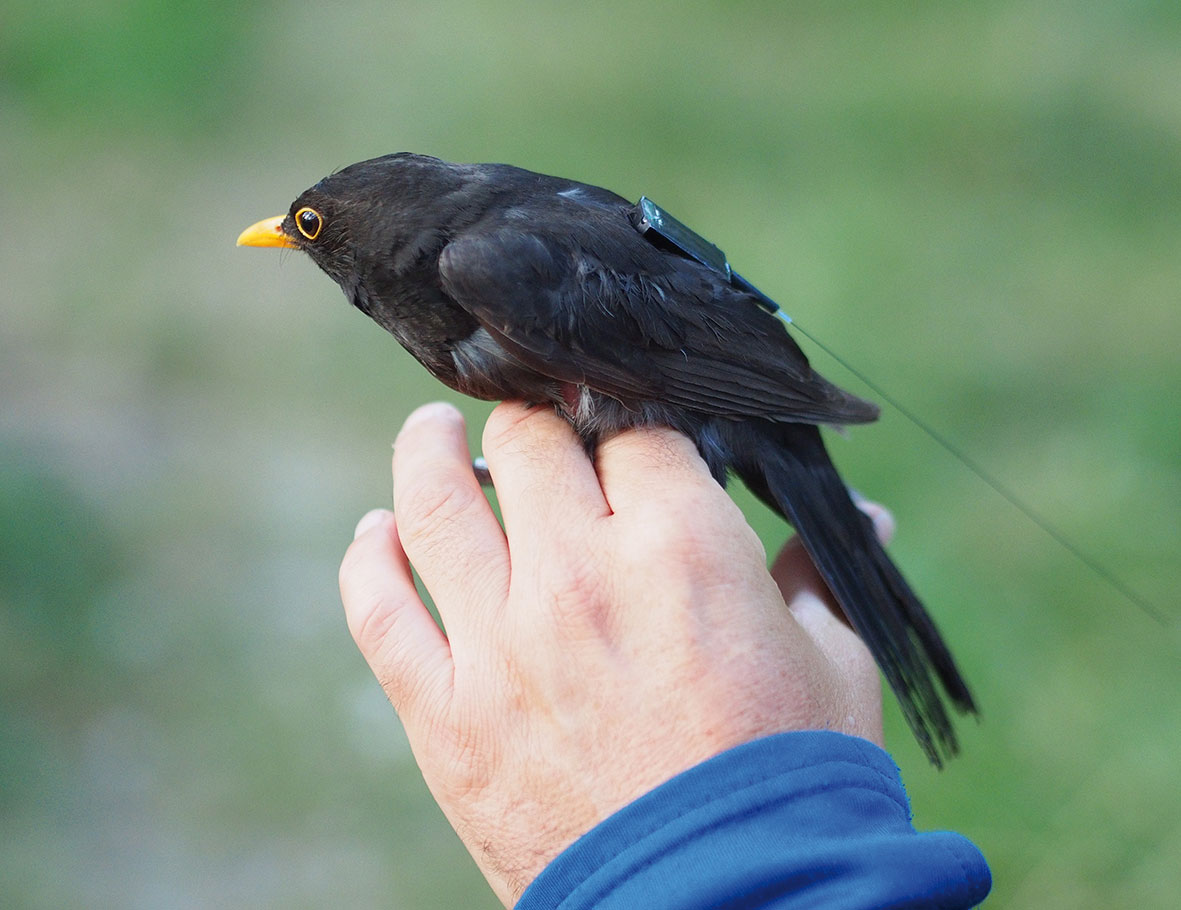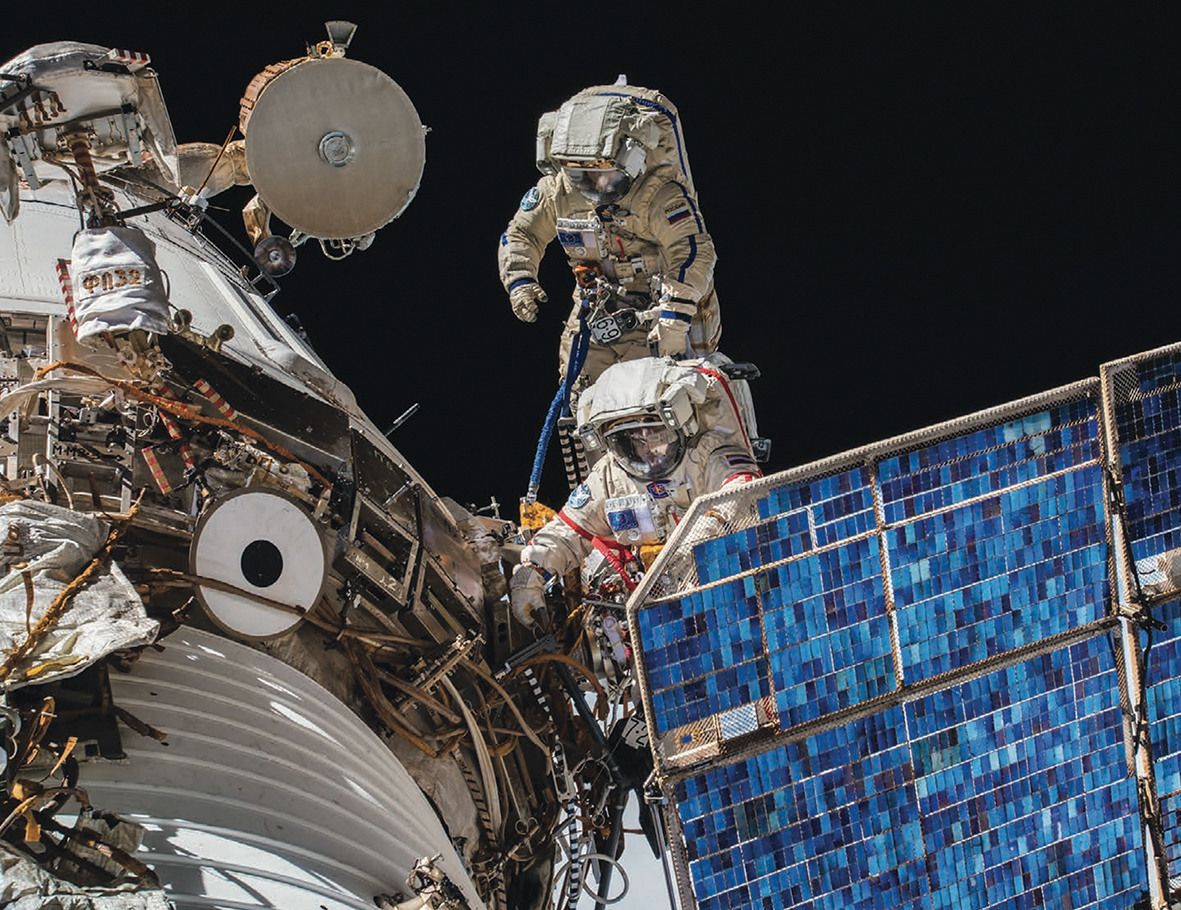Worldwide
Protecting wildlife with smart transmitters
Icarus is one of the most sensational projects in animal welfare and nature and species conservation. The Max Planck Institute for Animal Behavior under the direction of Prof. Dr. Martin Wikelski equips animals with miniature transmitters. The transmitter receiving antenna is located on the International Space Station ISS. The goal is to study the movement of various species to better protect them.
The Academy has supported Prof. Martin Wikelski and his project since 2019. The past year already revealed the significance of this support, and specifically, how injured animals can also be helped.
Prof. Dr. Wikelski reports:
“As in many areas of Africa and other natural areas of the world, large mammals in the Kruger National Park often fall victim to human traps. This is particularly evident when protected and endangered wildlife, such as African wild dogs, become entangled in snares set for edible game, such as gazelles. Often these animals die unintentionally in the snares, but at times they may tear or bite themselves free, inflicting deep wounds caused by the clinging snares. Electronic ear tags or collars, developed by the Max Planck Institute of Animal Behavior through the support of the Academy, can now be used to determine the health status of wildlife in near real time.
The electronic data loggers can sense when an animal is no longer moving appropriately for its species, such as when a wild dog is no longer running with its mates in the pack. The electronic tag then sends a warning signal to the game wardens and additionally shows the animal’s position. As in the case of the LP-X2-01 wild dog, the rangers could immediately find the
animal, anesthetize it, remove the snare, doctor the wound, and initiate wound treatment as a follow up. The wild dog LP-X2-01 could thus be saved from certain death by infection and starvation. This information is also available on the generally accessible Animal Tracker app. Using this app, visitors to the Kruger National Park can help protect wildlife and support rangers in their work.
The funding from the Academy was essential to make the Internet of Things the 'Internet of Animals‘ and to use it for their protection.”


